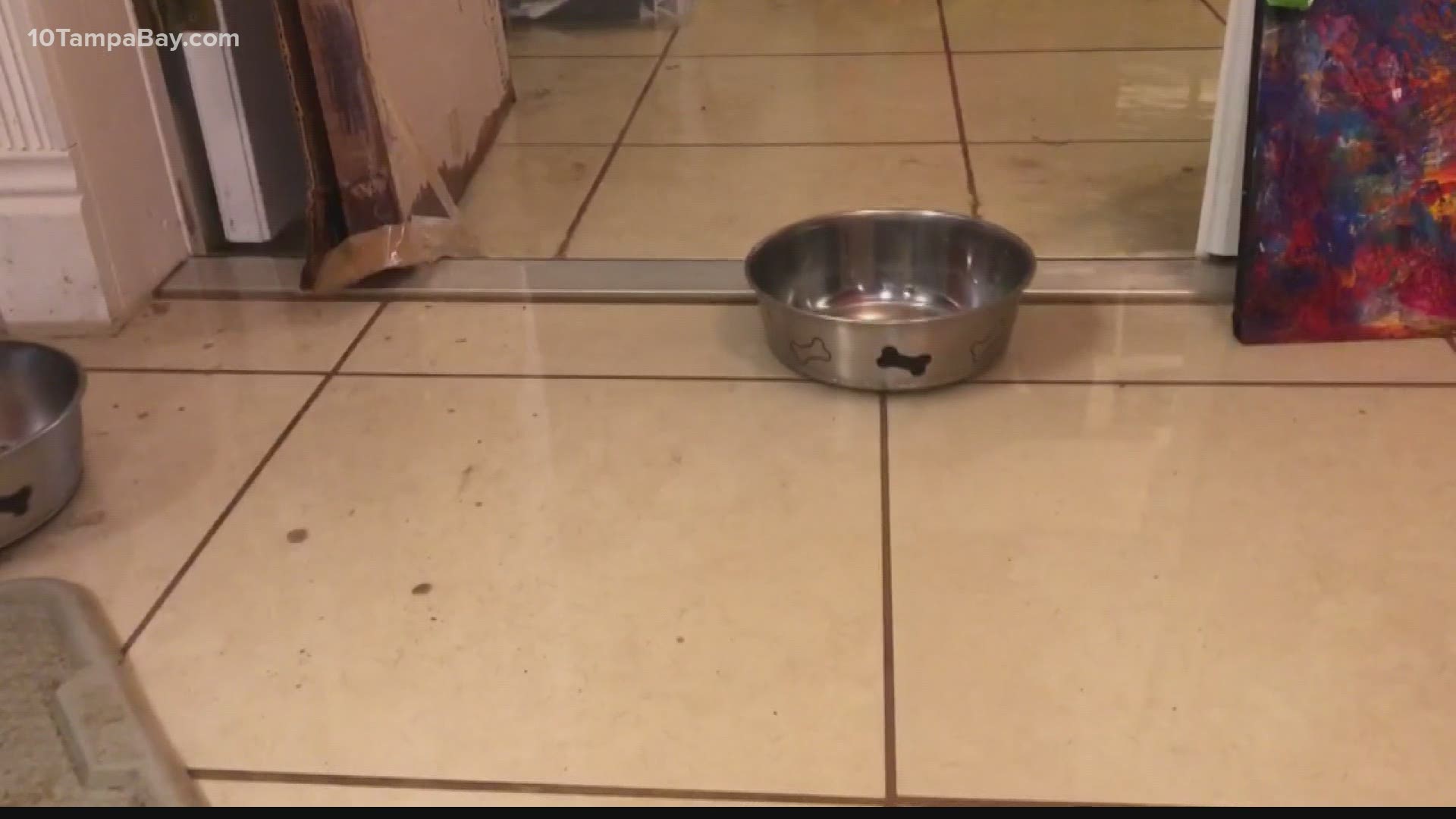TAMPA, Fla — Tropical Storm Eta made its second landfall in Florida early Thursday morning. As it approached the west-central coast of the state, it brought strong winds and heavy rain to the Tampa Bay area. With that, the storm surge caused flooding in some areas.
So, what should you do if your house floods?
If you’ve evacuated prior to your house flooding, Ready.gov says you shouldn’t return until authorities say it is safe.
According to floodsafety.com, if you’re inside your home when it starts flooding, try to move important documents out of reach of the floodwaters.
Ready.gov says if you’re trapped inside your home when it floods, go to its highest level. Don’t climb into a closed attic, because you may get trapped by rising floodwater. You should only get onto the roof if necessary and signal for help once there.
Wear protective clothing/gear
Floodsafety.com and Ready.gov recommend you wear rubber-soled boots to protect yourself from electric shock and as a protective barrier between you and floodwaters. Wear heavy work gloves and other protective clothing to keep yourself safe from possible debris.
Since we’re in the middle of a global pandemic, Ready.gov also recommends wearing a mask and social distancing if you’re cleaning up with someone else.
Reduce the risk of electric shock
If it’s safe to do so, you should shut off your circuit breaker to reduce the risk of electrocution. Ready.gov says do not touch electrical equipment if it’s wet or if you’re standing in water.
Move electronics with extreme caution
Floodsafety.com says “all electronics should be moved to high ground.” If you have an attic in your home, put them there, or secure them on top of the highest shelves in your house. However, Ready.gov says you should not touch electrical equipment if it’s wet or if you’re standing in water
Avoid drinking tap water
You should avoid drinking tap water until you get the all-clear from local authorities. Drinking tap water that hasn’t been deemed safe could be contaminated and you could risk getting an infection.
Secure your car in your garage
If possible, keep your car in a garage to help prevent it from getting swept away by floodwaters.
Continue to protect yourself from COVID-19
Ready.gov recommends you continue taking steps to protect yourself and your family from COVID-19 and other infectious diseases. Ways you can do that is washing your hands often, cleaning commonly touched surfaces, maintain social distance, wear a mask and follow other CDC recommended guidelines.
Additionally, if you’re feeling stressed, Ready.gov says “know that it’s normal to feel anxious or stressed. Follow CDC guidance for managing stress during a traumatic event and managing stress during COVID-19.”

